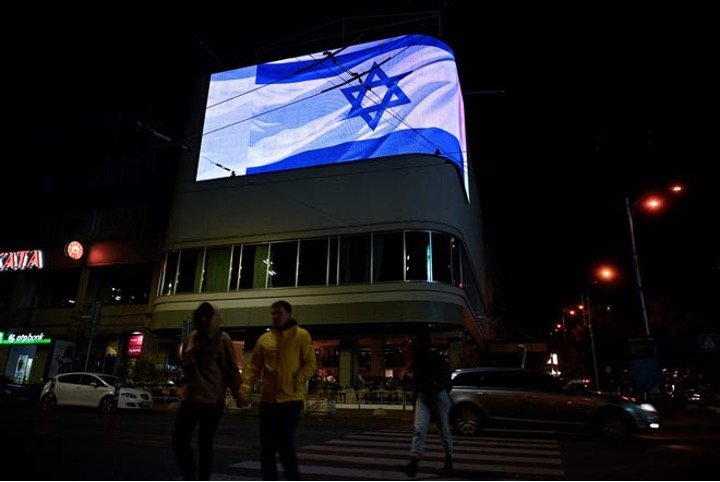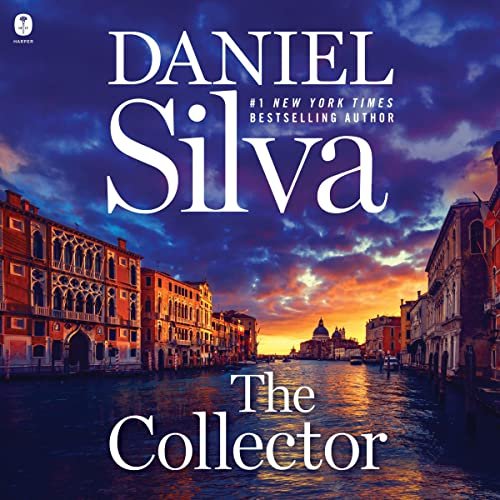Rabbi David Ellenson has died. I hate typing that sentence. Moreover, since it’s Chanukah, Jewish tradition says that part of the simcha of the season means that we shouldn’t give eulogies. So don’t consider this a eulogy, in the sense of a lament for a lost mentor. Consider instead a tribute: He meant an enormous amount to me, as a rabbi, mentor, and friend, so I’d like to share with my community of students and friends a little bit about his brilliance.
Rabbi David Ellenson teaching at the Shalom Hartman Institute, Jerusalem, Summer 2023 (photo: NG)
There are brilliant scholars in the world, and there are incredibly kind and compassionate people as well. But it is astonishingly rare to have both of those dispositions bound up in the same soul. Yet that was Rabbi Ellenson, as anyone who knew him will affirm.
David—and I mean no disrespect by calling him by his first name; he insisted on it, and he had a way of making you feel like such a cherished friend that it would seem impolite not to call him “David”—was an extraordinary leader. For much of his academic career, he was Professor of Jewish Religious Thought at the Los Angeles campus of Hebrew Union College-Jewish Institute of Religion. Since I was ensconced at HUC-JIR’s New York campus, I didn’t have the pleasure of studying with him in rabbinical school; I only got to know him after graduating.
I did things backwards: I had the great fortune over the years to become his friend, and subsequently I became his student. When HUC appointed him President, David invited me to be a founding member of something he called the “President’s Rabbinic Council.” He needed a kitchen cabinet of advisors, he said—with his ubiquitous smiling eyes—because he had no idea how to be a college president! That sort of modesty was characteristically David, and just one aspect that made him so beloved.
But no one was fooled by that self-deprecation. He was one of the most serious thinkers about liberal Judaism of this generation or any other. His scholarship on the development of modern Orthodoxy, modern Jewish philosophy, the meaning of liberal Judaism, the evolution of Jewish liturgy, the ethics of halakha, and so much more was impeccable. And just as important was his way of using knowledge and scholarship to articulate an ethical imperative for contemporary Jews of all stripes.
Here's a story. For many years my family lived in Highland Park, New Jersey, which has a unique mix of Jews from across the religious spectrum living alongside one another. Our next door neighbors were friends who became family (they remain so); they are observant Jews who are very active and committed to modern Orthodox institutions. I remember on occasion my neighbor would come over and ask, “Did you see Rabbi Ellenson’s editorial in the NY Jewish Week?” No, living in New Jersey and entirely overextended, I was not a regular reader of the Jewish Week. “I’ll clip it for you, it’s brilliant,” she said. And then: “How lucky we”—we, as in the entire Jewish community—“are, to have a voice like his.”
She was absolutely right. His intellect, his interests, and his menschlikhkeit overflowed the boundaries in which Jewish communities have fenced ourselves. Sure, much of his career was devoted to leading the academic flagship of Reform Judaism. But his intellectual seriousness and his generous disposition gave him credibility throughout the Jewish world. That sort of leader is, tragically, an endangered species in Jewish life today, and we need more of them desperately.
Others will trace his academic and writing career more completely than me. If you’d like a taste of his scholarship, I’d recommend the anthology Jewish Meaning in a World of Choice: Studies in Tradition and Modernity (2014), a collection of essays in the JPS “Scholar of Distinction” series.
Instead, let me make myself vulnerable by telling you what he meant to me.
When I was going through the hardest time in my life—when I was at a turning point in my career, abandoned by some people and institutions who said they “cared” about me—there were a few foundation stones in my life who totally embraced me: my family, some friends and colleagues… and David Ellenson.
At the time, David was the Director of the Schusterman Center for Israel Studies at Brandeis University. He was, by that point, a dear friend. When I didn’t know where to go or where I might land, he said to me, “Neal, I want you to come to Brandeis and study with me.”
Let me parse that: it was one thing to be there for me as a friend, confidante, and counselor. But at a time when my self-esteem was shot, and I was feeling quite lost both personally and professionally, David said to me: “I want you.”
So I enrolled at Brandeis, and eventually received my second Master’s degree. The biggest privilege was to write a Master’s thesis with David, which included studying with him one-on-one, and eventually defending the thesis before him (and another brilliant Brandeis scholar and mensch, Yehudah Mirsky). He believed in me, and I can only hope to honor his memory by doing likewise and paying it forward.
He taught our A Tree with Roots community on two occasions. Two years ago, when his most recent book was published, he came to me and asked if he and his co-author Rabbi Michael Marmur could do a program on our platform. They were, of course, wonderful: insightful, enlightening, and funny.
The second occasion was just five weeks ago. As part of the 30th anniversary of the Kavod Tzedakah Fund, we asked David to give the closing Torah teaching. It was scholarly discussion of the ethics of war in the writings of Maimonides and Rabbi Shlomo Goren. But the passion and complicated human emotions of Israel’s war with Hamas also came shining through; it was quintessential David Ellenson:
Rabbi Ellenson’s teaching begins at 39:45 in this video from A Tree with Roots
There is one mistake I’m proud that I didn’t make in this relationship: I told him often in the past few years just how much his love and support meant to me.
There’s a passage I’m thinking of tonight from Tony Hendra’s extraordinary book Father Joe (2004). Hendra[1], an English comedian perhaps best known for his role as band manager Ian Faith in the movie This is Spinal Tap, had a private and remarkable spiritual sanctuary. His mentor was a monk who lived for decades at Quarr Abbey on the Isle of Wight, and Hendra throughout his life would visit Father Joe there, for centering and counsel. He always presumed that Father Joe was “his” priest, and that their relationship was special and unique. At the end of the book, he goes back to Quarr for the Father Joe’s funeral—and he is astonished to discover that there were hundreds, if not thousands, of people all over the world who also loved him went to Father Joe for solace and guidance:
Common sense suggests it would be hard for one person to maintain in one lifetime more than a few such friendships. It would be taxing physically—the toll it would take on time, energy, patience, concentration—and brutally hard on the emotions, let alone the spirit. Yet as the tributes came in and I dug farther, it became clear that Father Joe had undertaken not just a few, or even a few dozen, but hundreds of such life-altering voyages.
I’m under no such illusions: I know that David Ellenson loved and was beloved by countless students all over the world. I also know that part of his brilliance, part of his awesomeness, was that he loved each one of us uniquely and in our own way.
In Judaism, that sort of spiritual mentorship is called being a Rebbe. And among his accolades and accomplishments, surely that title is the most precious of all.
זכר צדיק לברכה / The memory of the righteous is a blessing.
[1] I’m quite aware that after Father Joe was published, sexual assault allegations were made against Hendra by his daughter. It was an early “Me Too” moment, and Hendra died in 2021 scarred by the scandal. I will not whitewash him, for sure. But I can’t unread his book, nor can I deny that it is truly powerful.













